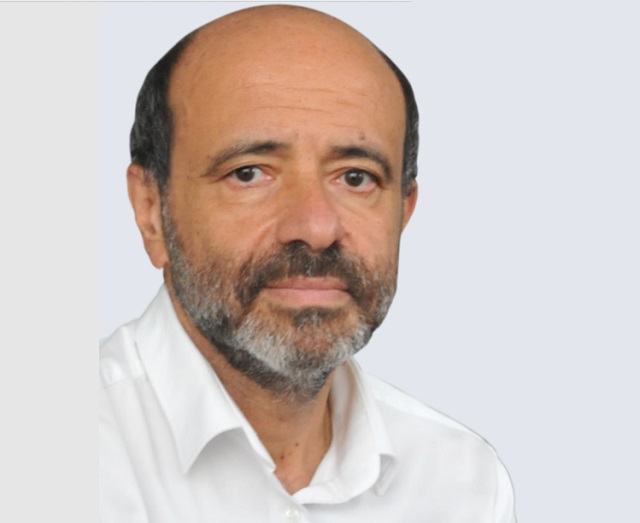
On Aug.29, Tullow’s proposed sale and purchase agreement stipulating the US$900 million farm down to its JV Partners, Total and CNOOC, was terminated. This news was followed a week later, on Sept. 05, with Total’s suspension of technical activities on its pipeline project—the EACOP. Pierre Jessua, the General Manager of Total E&P Uganda Ltd explained to THE INDEPENDENT’S RONALD MUSOKE the status of project activities.
What exactly led to the termination and collapse of Tullow Oil’s farm-down deal?
There were a lot of discussions with the Uganda Revenue Authority (URA) right from the beginning of Tullow’s transaction, but these basically came down to two main subjects. One was on Capital Gains Tax—the tax that the seller must pay and the other on issues regarding the transfer of the ‘tax deductibility” associated with past costs/investments. To cut a long story short, as far as the CGT is concerned, despite the fact there was a fundamental disagreement on the nature of the transaction and therefore the amount of tax to be paid, in order to allow the matter to be resolved and the project to move forward, our CEO (Patrick Pouyanné) met H.E President Yoweri Museveni and there was an agreement for the buyers to supplement the amount of tax that the seller accepted to pay in order for the government to receive the amount it considered payable. As part of this agreement, there was an understanding from Total that the buyers were inheriting the rights and obligations associated with the percentage participating interest being acquired from the seller, Tullow. This inheritance of rights and obligations from our perspective was to include the pre-development costs associated with the interest being acquired that had been spent in the past by Tullow in developing Uganda’s oil resources. We understood we would inherit those costs since we were reimbursing Tullow these expenditures. Of the US$ 900 million payable to Tullow, there was US$617 million which was recognized by both the government and the URA as expenditure linked to the oil exploration and appraisal activities—or costs which are recoverable. So, we needed to recognize that the US$ 617 million is “cost oil” or in other words investment which is recovered (as per the Production Sharing Contracts) via the sale of oil once production starts. In order to ensure this investment is recovered, the US$617 million must also be tax deductible for the purposes of the income tax calculation, otherwise, only 70% of the US$617 million is recovered once tax is applied to the revenues earned from sale of the cost oil. Therefore, it was not a favour which was requested or exemption but rather the application of a legitimate principle of the agreements we signed with the government to ensure that costs which are recoverable are not taxed. Total is happy to pay all the taxes that we must pay.
Some sections of the Ugandan public say the oil companies are using “bullying tactics” to make the government submit and give you what you want?
We do not play politics. The way Total behaves and does its business is not in any way done to pressurize the government. This is purely business logic and adhering to a principle of not taxing investments. Total is a listed company and we must be disciplined with our expenditures when we don’t have clear visibility of the schedule of our activities.
Is it true Total ‘suspended activities’ on the EACOP following the termination of Tullow’s farm-down?
Total has been at the forefront of the EACOP from Day-1. We have spent so far about US$ 325 million and we have been pushing everything we could without any financial contribution from the potential shareholders (of the pipeline project). However, we could not continue to perform further technical activities without realizing a breakthrough on a shareholding agreement and the legal framework for the pipeline. The reality is that we had to suspend technical activities of the pipeline but of course we kept the commercial, legal and contractual teams mobilized to discuss and work with our partners and the governments.
How frustrating is it for you to know that after two-and-half years’ negotiations, the Tullow farm-down to you has been terminated?
Definitely all the parties are frustrated. I must respect and recognize that the government has its frustrations and the joint venture partners have their own frustrations. But we are business people working all over the world and we have to continue to discuss and explain things. Most importantly, we must learn from what didn’t work in the way of presenting and discussing the recent issues.
How would youdescribe the Lake Albert Oil Development project you have been nurturing since 2012?
The oil in the Lake Albert region is a mature discovery.We are talking about 6bn plus barrels of oil although we are talking more about 1bn barrels of oil that can be turned into what we call reserves following our demonstration that it is recoverable. It is a significant volume of oil when you contextualize it with other discoveries from around the world. This project has a refinery component and a pipeline to transport crude oil to Tanga for the international market; so, it is a big project which requires a lot of (financial and human) resources to develop it and Total has strongly and steadily been working with its partners—CNOOC and Tullow to realise it. We have made a lot of progress as far as the technical elements are concerned; for example, we have made engineering studies and acquired land. We have performed the environmental and social impact assessment (ESIA) for the Tilenga project and we are in the final stages of the ESIA for the pipeline in Uganda. A lot of activity has gone on so far to be in a situation to take a final investment decision (FID).
At one point, Tullow’s US$ 900 million farm-down to you (and CNOOC) looked like a done deal to the extent that even before the sale was concluded, the government gave you the green light to operate Tullow’s acreage. What is the status of operatorship of Tullow’s acreage now?
There were some agreements reached amongst ourselves and the government as far as the operatorship is concerned and they were conditioned on the farm-down, therefore, Tullow retains its existing participating interest and operatorship role.
It appears the oil companies have suddenly based their FID on the outcome of the Tullow farm-down. Why has this been the case?
When you make a final investment decision, it means that you have a project where the board of the investing company has looked and assessed several parameters. You need to de-risk the technical issues, the commercial issues and many others. Once you have ticked all the boxes, each of the investment boards then takes a decision. I would say Tullow’s farm-down is not a goal in itself but linked to the financing of the project. That is why in 2017, Tullow looked at a partial farm-down of their stake in Uganda. I would still say the Tullow deal was an important element. However, you cannot summarize the final investment decision is the only requisite to the Tullow deal. It is the overall environment of the project that the JV partners are looking at. The project is large and complex because you have various upstream activities, you have a pipeline and you have two countries involved and by definition it means that it is encompassing various issues that we try to progress in collaboration with the authorities.
Lastly, given the current circumstances surrounding Uganda’s oil project, are you able to put a date upon which the JV partners will agree on FID?
I know so well that there are many expectations and the goodwill from everybody to regain momentum and to redefine dates but, unfortunately, what I can say today is that it is absolutely premature to start talking about a final investment decision date. I would say we need a little bit of patience; we need to work among ourselves, discuss with the partners and build up a scheme and share it with the government. I am sure that we will be able to come back with the appropriate dates, but I am not keen at all to start giving any kind of assumptions and speculation at this stage. It is too premature and we need to be patient.
****
 The Independent Uganda: You get the Truth we Pay the Price
The Independent Uganda: You get the Truth we Pay the Price


